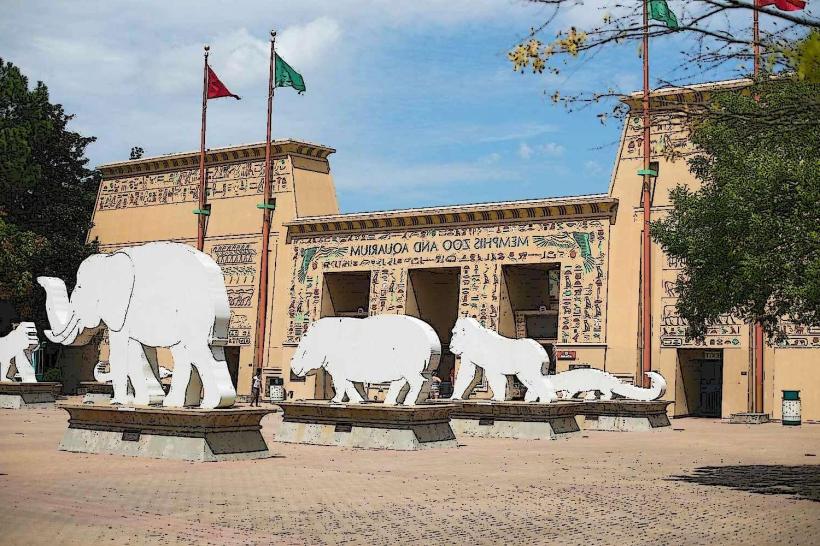Information
Country: USA TennesseeContinent: North America
USA Tennessee, North America
Tennessee is located in the Southeastern United States, bordering eight states: Kentucky and Virginia to the north, North Carolina to the east, Georgia, Alabama, and Mississippi to the south, and Arkansas and Missouri to the west. The state is divided into three "Grand Divisions": East Tennessee (Appalachian Mountains), Middle Tennessee (Central Basin/Highland Rim), and West Tennessee (Gulf Coastal Plain). The capital city is Nashville.
History & Culture
Tennessee was admitted to the Union in 1796 as the 16th state. Its history is defined by its role as a frontier state and its pivotal status during the Civil War, having more battles on its soil than any state except Virginia. Primary religious affiliations are Protestant (73%) and Catholic (6%). Social etiquette emphasizes "Southern hospitality," a standardized 18–25% tipping expectation, and a high cultural priority on musical heritage (Country, Blues, and Rock 'n' Roll).
Language & Communication
The official language is English. English proficiency is universal. Spanish is the most significant secondary language, spoken by approximately 5% of the population. Regional dialects include Southern Appalachian English in the east and a distinct Southern drawl in the central and western regions.
Population & Economy
The population is approximately 7.2 million, with an 80% urban and 20% rural distribution. Top three export commodities are computer and electronic products, transportation equipment (automobiles), and chemicals. GDP per capita is approximately $75,500 USD. The economy is driven by the automotive industry, healthcare services, and entertainment/tourism.
Visa & Entry Policy
Effective January 1, 2026, under Presidential Proclamation 10998, visa issuance is suspended or restricted for nationals of 38 countries. Citizens of the UK, EU, and other Visa Waiver Program nations require an ESTA for stays up to 90 days. Other international travelers require a B1/B2 visa. There is no Visa on Arrival system. Customs enforcement at Nashville (BNA) and Memphis (MEM) is strict regarding agricultural products.
Currency & Payment Systems
The currency is the United States Dollar (USD). Card payments and mobile "tap-to-pay" are universal in urban hubs. Cash is primarily used for small tips or in rural mountain communities. ATM availability is high, with dense networks in convenience store chains like Weigel's and Circle K.
National Transport Grid
Intercity travel is dominated by the Interstate Highway System (I-40, I-65, I-75). Domestic and international aviation is anchored by Nashville International (BNA) and Memphis International (MEM). Amtrak provides limited rail service via the "City of New Orleans" route (stopping in Memphis); however, 2026 development plans include a proposed expansion of the "Keystone" or similar corridors to connect Nashville and Knoxville. Long-distance bus transit is provided by Greyhound and Megabus.
Digital Infrastructure
Major mobile network providers are Verizon, AT&T, and T-Mobile. 5G coverage is comprehensive in the Nashville, Memphis, and Knoxville metropolitan areas. 4G LTE is the standard in rural areas, though significant dead zones exist in the deep valleys of the Great Smoky Mountains.
Climate & Seasonality
The climate is predominantly humid subtropical, featuring four distinct seasons. The wettest months are typically March and April due to spring storm systems. Late summer (July–August) is hot and humid. Autumn (October–November) is the driest season and the peak period for foliage tourism in the eastern mountains.
Health & Safety
No mandatory vaccines are required for entry. Specific environmental risks include severe thunderstorms/tornadoes (primarily in spring) and tick-borne illnesses in wooded areas. The emergency number for Police, Ambulance, and Fire is 911.
Top 3 Major Regions & Cities
Middle Tennessee (Music/Healthcare): Hub city is Nashville.
West Tennessee (Logistics/Blues): Hub city is Memphis.
East Tennessee (Nature/Research): Hub city is Knoxville.
Local Cost Index
1L Water: $2.20 USD
1 Domestic Beer: $6.50 USD
1 Sim Card (Data Plan): $45.00 USD
Facts & Legends
Tennessee is home to the "Bell Witch" legend of Adams, Tennessee, which concerns a 19th-century haunting of the Bell family and is one of the few instances in American history where a spirit was allegedly responsible for a human death; additionally, the state holds the record for the most caves in the U.S., with over 10,000 documented subterranean systems.
































